The email marketing industry is a special place because it's made up of great people. We at Stripo love to seek opinions on important industry issues. Earlier, we asked opinion leaders about the benefits of multilingual email marketing and email gamification.
Today, the topic we decided to talk about concerns women's self-realization and leadership. We often meet women leaders and influencers in the email marketing industry.
At Stripo, we want there to be no boundaries for women's self-realization in email marketing, which is why, like most of the industry, we also do everything possible for their growth and development.
47.95% of Stripo employees are women. Among team leaders — women make up 50%. For example, women in our company successfully lead the support service, content and PR teams, product marketing direction, accounting, HR, HRD, research, and recruitment units.
So how did women start to assert their right to vote, and do stereotypes still exist today?
Today, our material is dedicated to tagging some women in email marketing. We will find out if women face any particular challenges or issues in the industry, how they cope with them, and what dos and don'ts they can share with us.
There are two important dates when we talk about the influence of women in business, politics, economics, and the email marketing industry—March 8 and August 26.
Why do we celebrate International Women’s Day?
International Women’s Day (IWD) is when women worldwide celebrate their achievements in different spheres of life—political, economic, cultural, and social. They also call on all women worldwide to take further action for gender equality.
Some important historical facts about this day:
- 1908—the movement began in New York when 15,000 women protested and demanded equal rights and better working conditions—shorter working hours, higher wages, and the right to vote;
- 1910—Clara Zetkin proposed the idea of an IWD at the Second International Conference of Working Women in Denmark;
- 1911—first IWD;
- 1975—the UN officially proclaimed this holiday.
Every year, the UN chooses a topical theme for the celebration of March 8, with which it wants to emphasize the need to further fight for equal rights for women. For example, in 2023, it was “DigitALL: Innovation and Technology for Gender Equality.” In 2024, the IWD campaign theme is Inspire Inclusion, which aims to create a more inclusive world for women.
What is essential to do on IWD to help create a world of gender equality:
- remember and celebrate the achievements of women;
- write and talk about the equality of women in all spheres of life around the world;
- call for positive changes that improve the status of women;
- raise funds for women’s charities that help promote gender equality worldwide.
Even if it now seems to you that women have already completely won this fight in your country and society, it’s not true. In reality, it will take another 135.6 years to achieve equality between men and women around the world (The Global Gender Gap Report 2021).
So let’s keep going.
Why do we celebrate Women’s equality day?
Women's equality day has been celebrated every year on August 26 since 1971. On this day in 1920, the 19th Amendment to the Constitution was adopted by the US Congress, guaranteeing the right to vote to everyone, regardless of gender. It was on this day that women were given the right to vote.
Since the 19th century, women have been constantly fighting for equality in rights with men, and this struggle does not stop today. It is essential to be mindful of the challenges, barriers, financial and other discrimination that women may still face. Today it can be the wage gap between men and women or gender discrimination in workplaces and business transactions.
Therefore, on Women's equality day, it is customary to celebrate women's achievements in equal rights, education, work, business, and politics — in all areas, thanks to which women create a reliable basis for their strong future.
Among the traditions that are customary to follow on this day are:
- express support and gratitude to influential women in all spheres of life;
- support local businesses run by women;
- celebrate equality day in the company of your female friends.
In addition, on this day, it is customary to hold charitable collections for foundations supporting women's empowerment. It is also a good tradition to hold online and offline events where famous women are invited as speakers.
So that information about the achievements of women on this day is better scattered around the world on social networks, the hashtag #WomensEqualityDay is used.
One of the holiday traditions is to express respect and celebrate influential women. We invited women influencers in the email marketing industry to answer a few questions about women's problems and the solutions for this article.
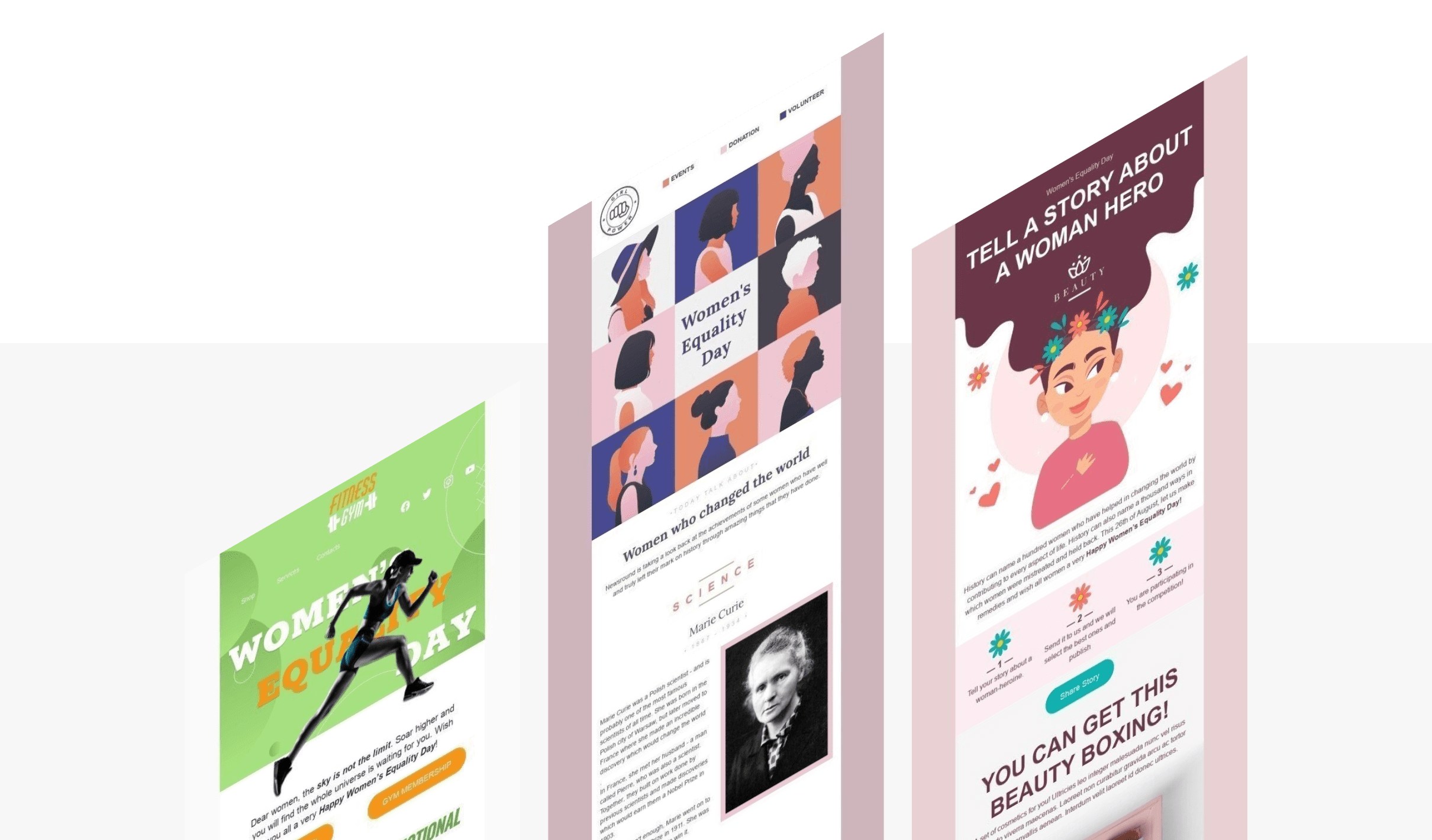
Women influencers' opinions on the challenges and gender equality in email marketing
We asked female opinion leaders about gender equality in the email marketing industry, their working challenges, and why they chose this field.
Interview Expert

Lauren Meyer dutifully serves the email industry with a strong focus on email marketing, strategy, deliverability, and compliance.
S: Were there any challenges you've faced as a woman throughout your career? And how did you overcome them?
For years (and years), I genuinely believed if I kept my head down and worked hard enough, people would eventually recognize my worth and treat me accordingly with raises and promotions.
But that's not how life really works… especially for women. Instead, I constantly fell into the "unofficial team leader" role and "next to be promoted after so-and-so." I swallowed that pill too many times—letting it impact my confidence, mood, and health — before realizing nothing would change until I started advocating for myself.
I found speaking up very challenging at first. Bringing up my accomplishments felt like bragging. Asking for a raise required weeks, if not months, of pumping myself up. Heck, even just the thought of talking or asking a question during a meeting led to sweaty palms and an increased heart rate. It didn't help that I was smack-dab in a toxic working environment.
But through all of that stress and awkwardness, I learned how to embrace my authentic voice, lean into my strengths, and become comfortable with the impact I can make. That's not to say I don't still doubt myself… I am my worst critic and am confident I'm not alone.
Here are three concepts I try to channel:
- Perfect is the enemy of good. Just ship it! Iteration is a thing of beauty.
- Get out of your comfort zone! You can only learn or grow if you make mistakes.
- Teams thrive on diversity, but only if everyone shares their unique perspectives. So speak up! Teamwork makes the dream work, as they say.
S: Is there any gender inequity in the marketing industry today?
My experience has mainly been within the email realm, which is very male-dominated. Women are typically well-represented in marketing — much more than in other departments. The closer you reach the leadership level, the quicker those numbers dwindle.
We do have allies, though! Alexis Renard, the CEO I worked with while at Mailjet, built a leadership team that was balanced and diverse: an actual 50/50 split of women and men. Our team's synergy was palpable, and it's something I aspire to help build within every company I work for.
S: What are your dos and don'ts about email marketing? Name three of them, please.
My dos are as follows:
- DO follow the rules created by the folks in charge (that’s mailbox providers and the customers they serve).
- DO review your engagement metrics at the destination level to spot provider-level issues with deliverability. For example, if your open rate is 40% across the board, but it’s 6% at Hotmail, you’ve likely got an inbox placement problem there. Go dig around and find out what’s going on.
- DO be thoughtful — and creative — about how you can encourage your email recipients to engage with your emails. It's good for deliverability. It's suitable for building brand loyalty. It's the closest thing to a growth hack that exists today. Speaking of hacks…
Here are 3 don’ts:
- DON’T waste your time on inbox hacks. They don’t work, and they will damage your sender reputation. No, seriously… Run away from any vendors who guarantee inbox placement, claiming they can remove all the spam traps from your list. Or those using some magical line of code to help you avoid the dreaded Gmail Promotions tab (even though it’s not a dreaded place to be at all). If you want to optimize your inbox placement (and email ROI), spend time, effort, and resources aligning your email program with industry best practices such as authenticating (with SPF, DKIM, DMARC) and getting permission before emailing.
- DON'T worry about that list of "spammy words" people keep telling you to avoid. You can use ALL those words if you want, as long as your email audience enjoys your content. Look at your engagement metrics (such as opens, clicks, conversions, unsubscribes, and complaints) to understand what your email subscribers like (and don't!), and adjust your content and/or segmentation accordingly. In my recent LinkedIn carousel about email myths, you can learn more about content's impact on deliverability.
- DON'T mindlessly assume your emails will go to the inbox simply because you comply with regulations such as CAN-SPAM or GDPR. Truth be told, mailbox providers don't care about legality regarding inbox placement. Their primary focus is keeping their users safe and engaged with the content in their inboxes. Say it with me, friends: legality ≠ inbox placement.
Interview Expert
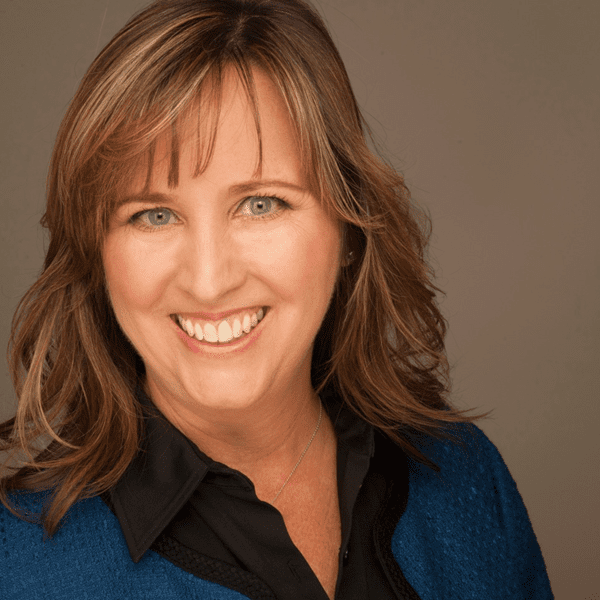
Jeanne Jennings is a recognized expert in email marketing and a sought-after consultant, speaker, trainer, and author specializing in email marketing strategy, tactics, creative direction, and optimization. She helps organizations make their email marketing programs more effective and more profitable.
S: Were there any challenges you've faced as a woman throughout your career? And how did you overcome them?
I think we’ve all faced challenges in our careers, no matter our gender.
Early in my career, I had confidence issues and imposter syndrome. I was lucky to have a network of people who supported me and helped me overcome these challenges, including Mark Potts and Stephanie Fierman, my VPs at Cahners/Reed Business Information US, Rebecca Lieb, my editor at ClickZ, Bill McCloskey, founder of Only Influencers, and the original community of email industry professionals.
More than once, I’ve done salary research to make a case for a raise or a higher starting salary. No matter your gender, knowing how to negotiate for what you’re worth is good.
With regards to challenges, it’s important to (a) address them when they arise and then (b) not dwell on them when they’re resolved. When you hang on to real or perceived slights, it’s an impediment to your future success. Deal with them and move on.
S: Is there any gender inequity in the marketing industry today?
I don’t see widespread gender inequity in the email marketing industry today.
Are there still people who behave badly, mansplaining and the like? Sure. Are there still people who underestimate the knowledge and capabilities of others based on gender, age, race, or some other characteristic we’re born with? Sure.
But in my experience, these are isolated incidents.
The 2023 Email Innovations Summit just ended; there was no gender inequity in speakers, and women were moderating both stages. Ada Barlatt, Hannah Bink, Corrina Cohen, Bridgette Darling, Tali Hasanov, Rebecca Herwitt, Elizabeth Jacobi, Jeannette Kocsis, Jenny Maglio, Genna Matson, Kath Pay, Leah Peroni, Janet Roberts, Karen Talavera, Larissa Uredi, and I were all part of the program. And it was a great event.
Interview Expert

Anna Levitin, a member of the “Women of Email” association and a speaker at MailCon, InboxExpo, and Litmus Live. Now Anna leads Email and Marketing Ops at Powtoon, an animation software that allows the creation of professional and fully-customized videos.
S: Have you faced any challenges as a woman throughout your career? And how did you overcome them?
I have experienced working and living in three different countries, and the challenges I faced varied depending on my country. I felt less empowered in certain workspaces, and there were doubts about my ability to lead a team.
In general, I believe that challenges should be based on expertise and should encourage my professional growth. Challenges based on gender do not help develop me as an expert.
S: Is there any gender inequity in the marketing industry today?
I can’t stop talking about how great the email community is! Personally, I don’t feel any inequity among email marketers, but I understand that it may not be the same for all marketers.
I frequently speak at various marketing events in Europe and the US, and I’m extremely proud to see many female speakers from different areas within the marketing field. There is a professional network called “Women of Email,” of which I’m a member. This community drives positive changes within the industry and promotes professional growth for women.
I’m connected to many women who mentor, help others grow, and organize masterminds specifically for women in email marketing. I’ll be happy to connect readers with those experts.
S: Why email marketing? What about this industry attracted you?
Great question. I started my marketing journey by working with classic media such as newspapers, radio, and TV commercials. Then I gradually shifted to the digital world. For a few years, I mainly worked for start-ups, and being part of the marketing team in a start-up meant that I was head-on everything. I have experience with PPC campaigns, affiliate programs, SEO, blogger outreach, retention marketing, and more.
When I decided to challenge myself with a new marketing position, I was specifically looking for a retention/email marketing role because I felt that it suited my personality.
I outlined seven primary skills or character traits that I consider essential:
- Care. A relationship with a customer starts from transactional interaction, and the email marketing team’s goal is to move it toward a relational connection.
- Be a people person. As simple as it is, every new customer is a step up for your company and an opportunity to strengthen your professionalism.
- Never trust your gut feelings. Your intuition is a great tool to use, but you cannot rely on it. Constantly A/B test your ideas and never be 100% sure of "what works best."
- Believe that every person is unique. Serve customers with what they want to see, not the best practices.
- See patterns. Although this item contradicts the previous one, there is always a pattern. Time, frequency, products, each of these criteria could be fundamental in creating customer retention patterns.
- Natural curiosity. There aren’t many new channels in retention marketing, so when something that hasn’t been used before comes along, I encourage you to test it.
- Ask for advice. No one knows your product and audience as well as you do. It’s both good and bad. While keeping yourself sharp, always bring a new pair of eyes and ask your colleagues and friends for help.
Interview Expert

Jenna Tiffany, the multi-award-winning marketer and author, has been recognized as one of the top 50 marketers to follow in the world. Jenna has consulted with brands such as Shell, Hilton, and World Duty-Free, to name a few, on marketing strategy.
S: Were there any challenges you've faced as a woman throughout your career? And how did you overcome them?
My most recent challenge as a woman was when I was pregnant with my son. Running your own business is very rewarding but can also be tough, and I distinctly remember being on a call with a new potential client. We were finalizing the proposal, and my pregnancy came up in conversation as I had a check-up and couldn’t make the suggested date for the next call.
The prospect (a man) commented about morning sickness and needing to be available or in the right headspace for the project. I have yet to hear back from the prospect. From then on, I didn't mention my pregnancy, which is easier to do in a virtual world. I found the different reactions I received when the topic came up very eye-opening. I was incredibly disappointed in this day and age that I had to hide my pregnancy not to lose opportunities.
This was a reflection point for me on the types of people and clients we work with at Let’sTalk Strategy. If I felt I couldn’t share this piece of information, then I knew there and then that it wasn’t the best fit for my agency.
Interview Expert
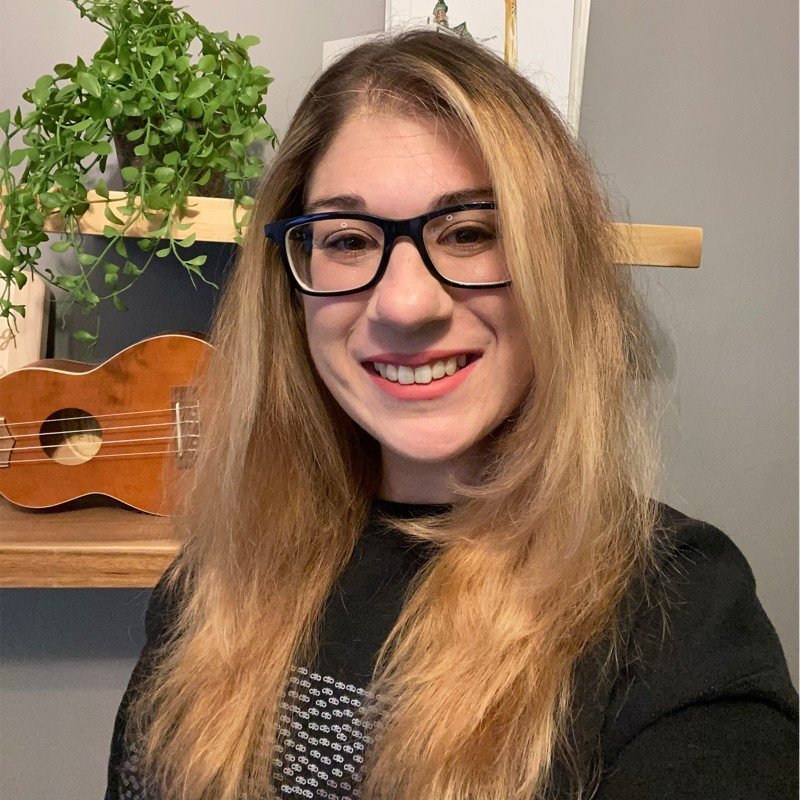
Megan Boshuyzen is the senior email developer at Sinch Email, overseeing email development for Sinch's Mailgun, Mailjet, Email on Acid, and InboxReady products.
S: Were there any challenges you've faced as a woman throughout your career? And how did you overcome them?
There are definitely challenges I faced as a woman throughout my career. Two major milestones — getting married and having children — caused me to pivot my career in unexpected ways that I don't think would have affected a man.
I worked in a retail store for a large tech company when I got married, and I had expressed interest in an open position. When I returned from my wedding and honeymoon, I discovered that not one but two men were hired into the position management knew I wanted. I fought hard to get onto that team. I was the only woman, and while my coworkers were great, I faced a lot of sexist comments from customers. I ultimately left that job for a better opportunity.
After my daughter was born in the summer of 2016, I was informed a week before returning to work that my job would be eliminated at the end of the year. The company I worked for had put no thought into my return, apparently assuming I would no longer want to work, which couldn't be further from the truth! Becoming a mother did not detract from my desire for a fulfilling career. In fact, I became even more sure in my desire for a career to show my daughter that women belong in this field.
I often joke that I grew up on 1990s girl power and USA women's soccer, and I'm lucky I have parents that encouraged me to reach my goals and never give up. Without that drive (and lots of help from others), I would not be where I am today. I've learned that you can often find another opening when one door slams shut.
S: Is there any gender inequity in the marketing industry today?
Yes, absolutely. I hear stories from other women all the time about the sexist comments and situations they endure. Sadly, sometimes I experience condescending comments, and I let it roll off my back because I know it's an issue with the other person, not me. I don't have to prove myself to anyone.
Many email developers I talk to are real champions of women in the email field, and I'm forever grateful for their friendship. Organizations like Women of Email have done a lot to ensure women are more visible in the email space. It's so important to support initiatives like Women of Email and lift each other because there's space for everyone, of all genders, in this space.
Interview Expert

Dorissa, a senior affiliate marketing manager at HubSpot, works on user acquisition via HubSpot's affiliate partners. Dorissa shared her reasons for choosing this communication channel and her dos and don’ts.
S: Why email marketing? What about this industry attracted you?
Although my role is as an affiliate marketing manager, I frequently use email marketing to engage with our affiliate partners. Email marketing continues to prove a powerful tool for reaching and communicating with your audience.
Standing out in crowded inboxes can be challenging, but it also presents an intriguing opportunity for creativity and innovation. I am drawn to the constant need to find unique strategies in this industry, as it keeps me engaged and continuously learning.
S: What are your dos and don'ts about email marketing? Name three of them, please.
My dos are as follows:
- Do: Segment your email list as strategically as possible. I like to focus on the goal of the email. Each segment within your audience may have different goals or needs, and it is essential to craft your emails accordingly. By aligning your message with the specific objectives of each segment, you can ensure that your content resonates with your audience and drives the desired action. This targeted approach enhances the effectiveness of your email marketing and reinforces the value you provide to your email list.
- Do: Personalize your emails. Regarding personalization, think beyond simply including the recipient's name or referencing their previous purchases. It's important to take personalization even further to connect with your audience on a deeper level truly. Rather than just relying on generic personalization tokens, aim to make your emails sound like genuine conversations tailored to each individual and their unique context. People are perceptive and appreciate when a brand takes the time to understand their specific needs and preferences. By going the extra mile with personalization, you can create a genuine and engaging email experience that resonates with your audience personally.
- Do: include a clear call to action (CTA) at the end of your emails. For an email to be effective, it is crucial that you communicate what action you want your recipients to take. Whether it's making a purchase, signing up for a webinar, or downloading a resource, a strong and visible CTA can significantly improve conversion rates.
Here are my don’ts:
- Don't send too many emails. Bombarding your email subscribers with many emails can lead to fatigue and unsubscribes. It’s tricky, but it is important to find the right balance between sending enough emails to maintain engagement without overwhelming your recipients.
- Don't make your emails too long. Keep your emails concise and focused. Too much content can overwhelm your readers and make it less likely for them to take the desired action. Stick to the main message and provide clear calls to action.
- Don't underestimate the need for testing and tracking. Regularly A/B test different elements of your email campaigns, such as subject lines, content, and timing. Monitor your email analytics to see what's working and what's not, and continually optimize your email marketing strategy based on these insights. While it may seem tempting to rely solely on intuition, leveraging data to justify your decisions is an invaluable practice. It allows you to challenge assumptions and make informed choices based on tangible evidence. By staying attuned to the performance metrics of your email campaigns, you can enhance engagement and conversion rates and ultimately achieve better results.
Interview Expert

Emily McGuire is a seasoned email marketer who builds and retains customer relationships at scale. With the lessons learned from sending thousands of emails and crafting multimillion-dollar email campaigns, Emily loves sharing the mistakes and strategies of email marketing.
You’ll typically find her with a cup of coffee in hand because #momlife. When her head isn’t on her laptop, you can find her chasing her kid, reading a book, or binging trashy TV.
S: Were there any challenges you've faced as a woman throughout your career? How did you overcome them?
Early in my career, I did my best to hide parts of being a woman that companies didn’t find professional or perceived as less reliable.
For example, I would interview without my wedding ring right out of college because I’d heard stories of young, married women not getting hired. I feared I’d have a baby soon and leave the workforce.
That did not protect me from working at places that loudly expressed those beliefs. Later, when I finally had a kid, I faced the same questions. Would I be a reliable worker? Would I come back after maternity leave?
I’ve been working since I was 14. I don’t have plans of stopping any time soon. As I’ve gotten older, I’m learning to worry less about how capable people think I am based on their biases.
My fear was having a promotion or job offer held back. Now, I have more confidence in my skill set and ability to find people who respect it. That’s from continuously building the muscle of having hard conversations and identifying people with your back. It’s a work in progress.
S: Is there any gender inequity in the marketing industry today?
I don’t think marketing is unique in gender inequity. Overall, I think marketing is a misunderstood field that most people think is “easy” or “anyone can do it.” It’s hard because we all consume marketing almost every minute of our day. When it becomes the backdrop of our lives, we take for granted the work and skill it takes to strategize and execute.
Most people don’t understand that a campaign that they could consume in less than 30 seconds took hours and hours of work and years of learning through failure.
We can equate this type of dismissiveness to the often invisible labor many women take on in their lives as “easy,” like caregiving and running their households. Because it is the backdrop of our lives, and most people don’t understand the mountains of work it takes to keep a house clean, children cared for, or meals ready to eat, they don’t consider it “hard work.” Yet they freely offer unsolicited, inexperienced opinions without offering resources to help.
S: Why email marketing? What about this industry attracted you?
Email marketing is a blend of creativity and technology. It scratches both of those itches for me. I can develop a fun, creative campaign and then work through the technical requirements of executing it.
On top of that, it's the ultimate relationship-building and managing tool. You can take vast amounts of data, tie it to an identifiable human being, and personalize your content to them. With other marketing channels like social media or ads, we don't have this same opportunity to have conversations about our relationship with customers.
Interview Expert
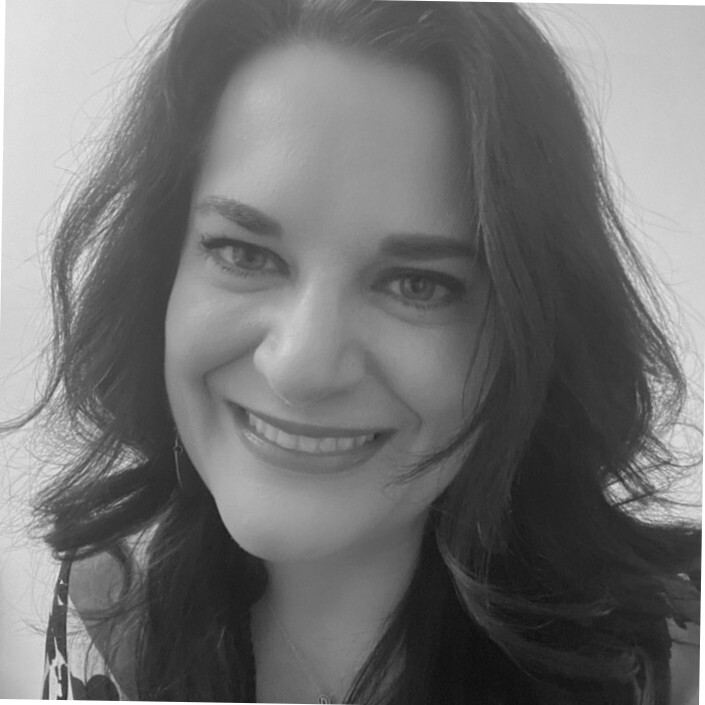
April Mullen has over 17 years of experience as a marketer for brands and agencies. She has spent the last decade focusing on her career in the MarTech niche. Outside Braze, Mullen has been an adjunct professor of digital marketing at the University of Missouri-St. Louis since 2013. Mullen was named in DMNews’ 40 Under 40 list in 2018 and DMNews’ 2019 Marketing Hall of Femme Women to Watch list.
S: Were there any challenges you've faced as a woman in your career, and how did you overcome them?
Earlier in my career, I was deemed “passionate” when I immersed myself in the work and took it seriously. Even then, I knew that biased institutional practices were at play in assigning judgment and emotional labels to what was simply career ambition and love for marketing.
There have also been times in my career when I was afraid to speak up and advocate for myself. I worked hard to overcome that through mentors, industry friends, and a good career coach. I’ve also learned to give and receive feedback, which is something I struggled with earlier in my career.
S: How do you perceive gender inequity in the marketing industry today?
Salary is still an issue. According to a survey fielded in 2023 by martech.org, women in marketing make 24% less than men. This is worse for women of color. This especially impacts women who are head of their households from an income perspective. It’s a challenging issue that isn’t easy to solve.
There’s also the work of marketing itself that can perpetuate harmful stereotypes that deepen gender inequity. We have a massive responsibility in the industry to promote equitable visuals and messaging and ensure the technology we use, like AI, isn't introducing biased decisions and outputs.
S: Why did you choose email marketing, and what do you find most compelling about this industry?
Like most email marketers, email found me. I started my career as an e-marketing coordinator for an eCommerce company. I worked on email, affiliate marketing, site reviews, landing pages, social media, and more. When a person senior to me left the company, I took over the email program as my main focus.
While I don’t send promotional emails anymore, I do work in the email and customer engagement space as a content marketer because I know this space so well. I also teach an email and cross-channel course at a university. Email has made a lot possible for my career and has literally taken me to many places.
Wrapping up
Most interview participants emphasized that they don’t see widespread gender inequity. However, some of them noticed that the email realm is very male-dominated. Experts have also noticed that women often have to put more effort into their career growth in parallel with their roles as wives and mothers.
That’s why it’s so important to support initiatives like celebrating IWD and Women’s Equality Day to highlight the role of women in the industry.
We are grateful to everyone who took part in this material. In this article, we wanted to show that leadership is one and should not depend on gender and be limited to artificial boundaries.
What is your experience? We will gladly read your opinions about women’s challenges and issues. Share with us in the comments.
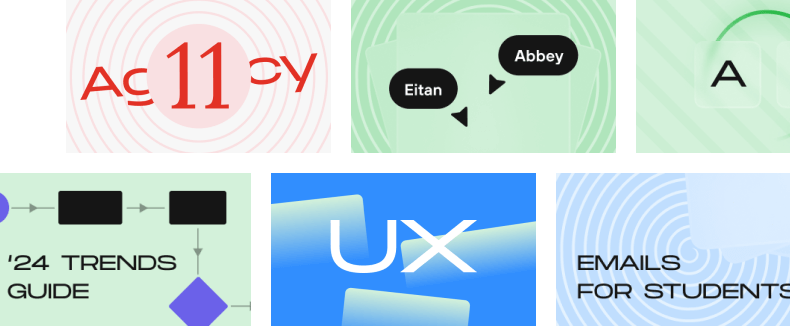
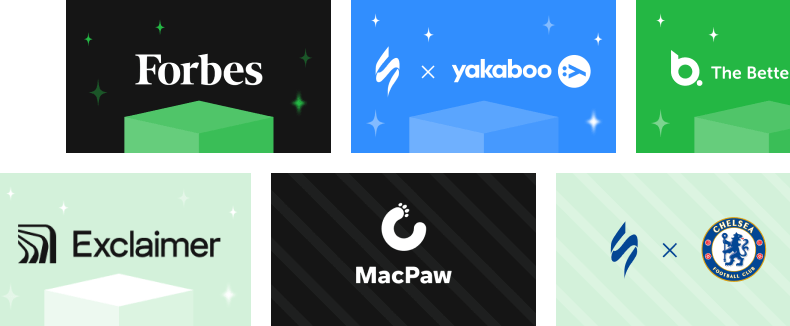
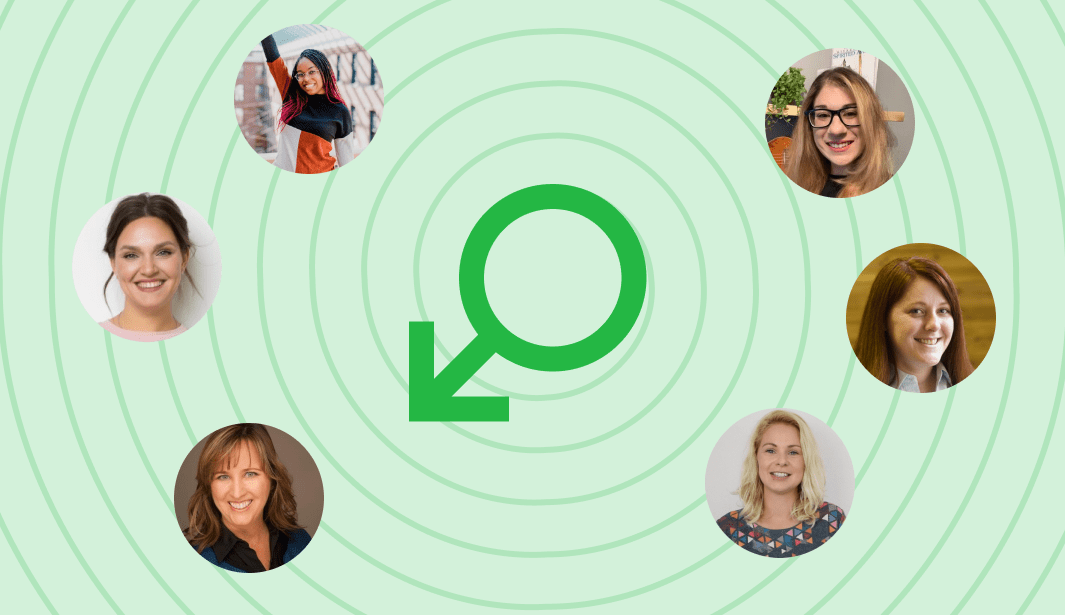

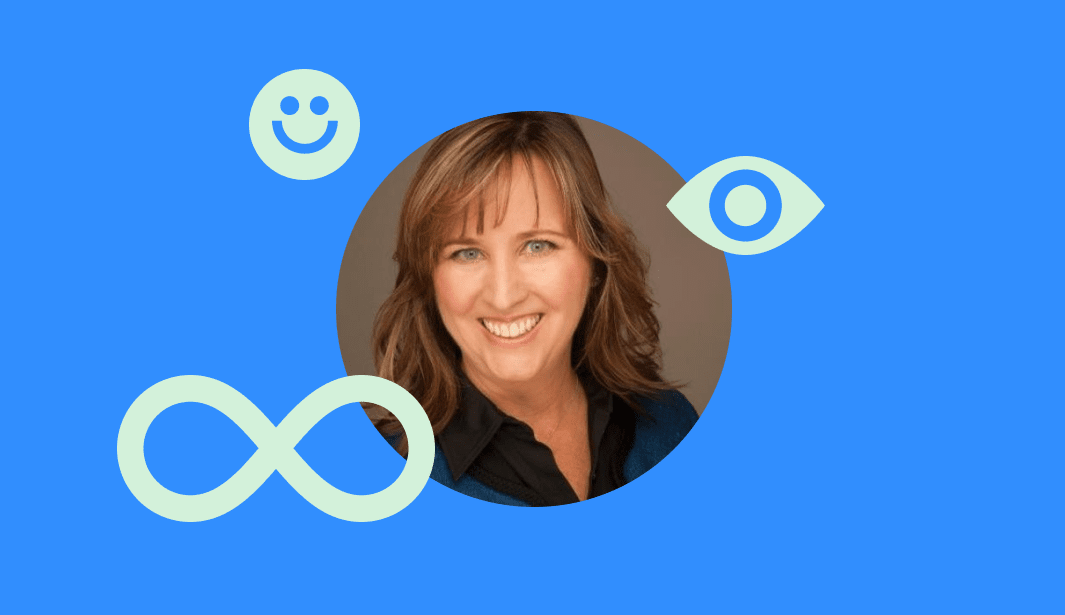

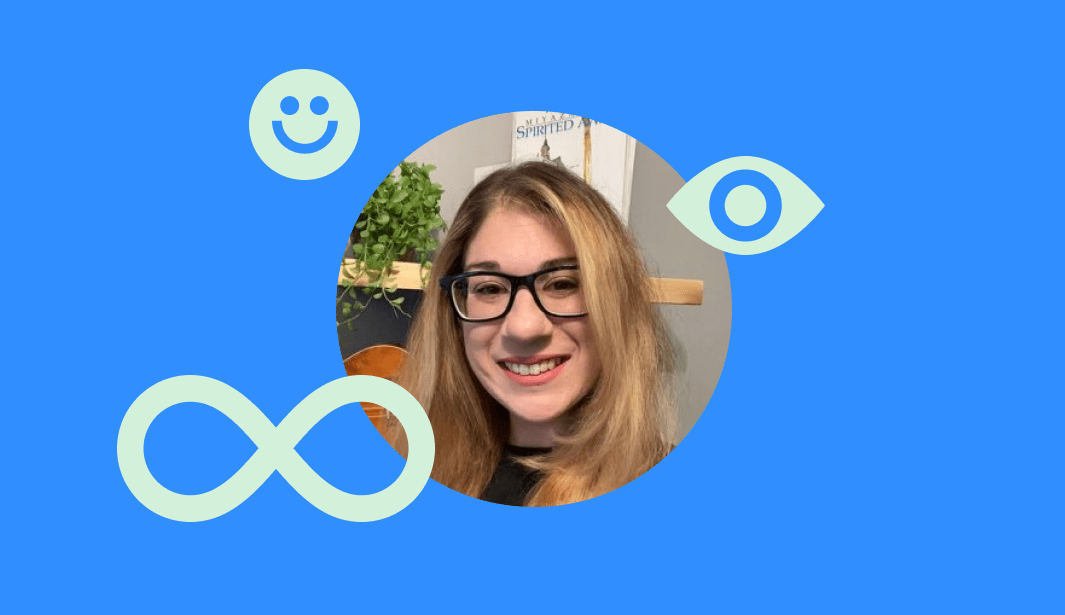

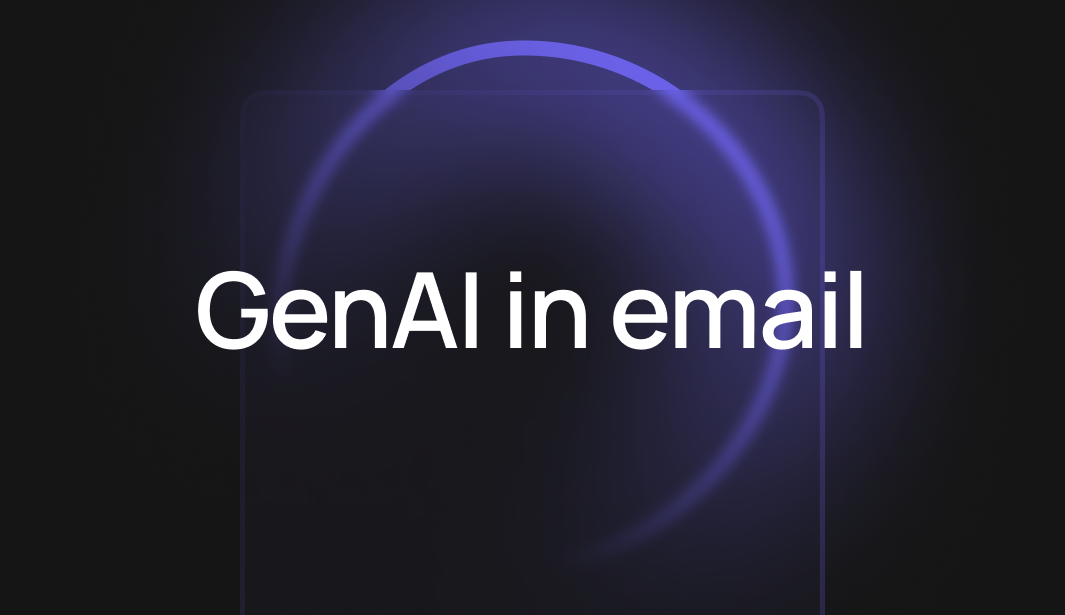


0 comments